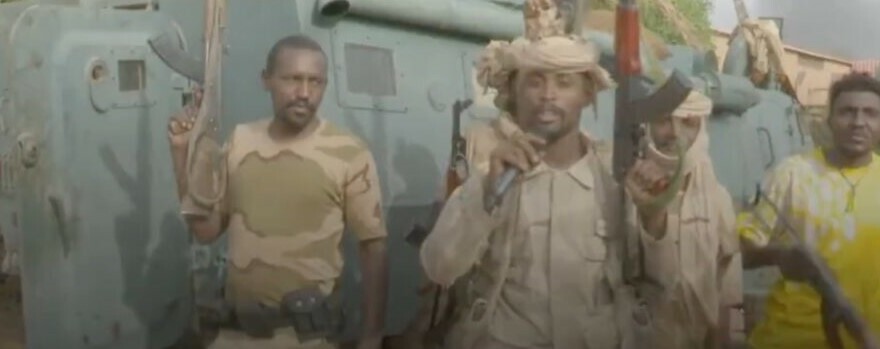A political activist hailing from West Darfur State has highlighted that the conflict unfolding in Darfur and Sudan since April 15 has surpassed the expectations of ordinary citizens.
Speaking to Radio Tamazuj over the weekend, Political activist Ahmed Khalil Abdel Malik said that the war, which commenced in mid-April, forcibly displaced citizens from their homes and cities, transforming them into refugees in neighbouring countries amidst severe humanitarian challenges.
He further emphasized the myriad challenges hindering the political process in Sudan, such as party divisions and the erosion of social capital. Khalil stated, “The current situation has resulted in significant waves of displacement and asylum, with Sudanese individuals seeking refuge in Chad, Kenya, Uganda, South Sudan, and Egypt.”
“These individuals are enduring harsh humanitarian conditions in refugee camps, creating difficulties for organizations attempting to intervene and address their needs given the sheer magnitude of their numbers,” added Khalil.
He highlighted the profound psychological aftermath of the war, describing it as a substantial burden for those who have lost their homes, families, and loved ones.
Khalil emphasized that the condition of Sudanese refugees in Uganda is dire, as they grapple with adapting to a different lifestyle and navigating unfamiliar policies. Additionally, a significant number of children and students are currently outside the educational system due to the complexities they face.
The activist asserted that the key to resolving the Sudanese crisis lies in putting an end to the war. He underscored the necessity for a genuine commitment from all conflict parties, including swift support from the Sudanese army and affiliated groups.
Sudan spiralled into war after soaring tensions between army chief General Abdel Fattah al-Burhan and RSF commander General Mohammed Hamdan Dagalo exploded into open fighting in mid-April.
The war broke out due to disagreements over plans for a political transition and the integration of the RSF into the army, four years after former ruler Omar al-Bashir was deposed in an uprising.
More than 12,000 people have been killed, according to a conservative estimate by the Armed Conflict and Event Data Project, while the United Nations says nearly 6.8 million have been forced to flee their homes.
To contact Radio Tamazuj with comments, news tips or information, write to radiotamazuj@gmail.com or use the contact form.




